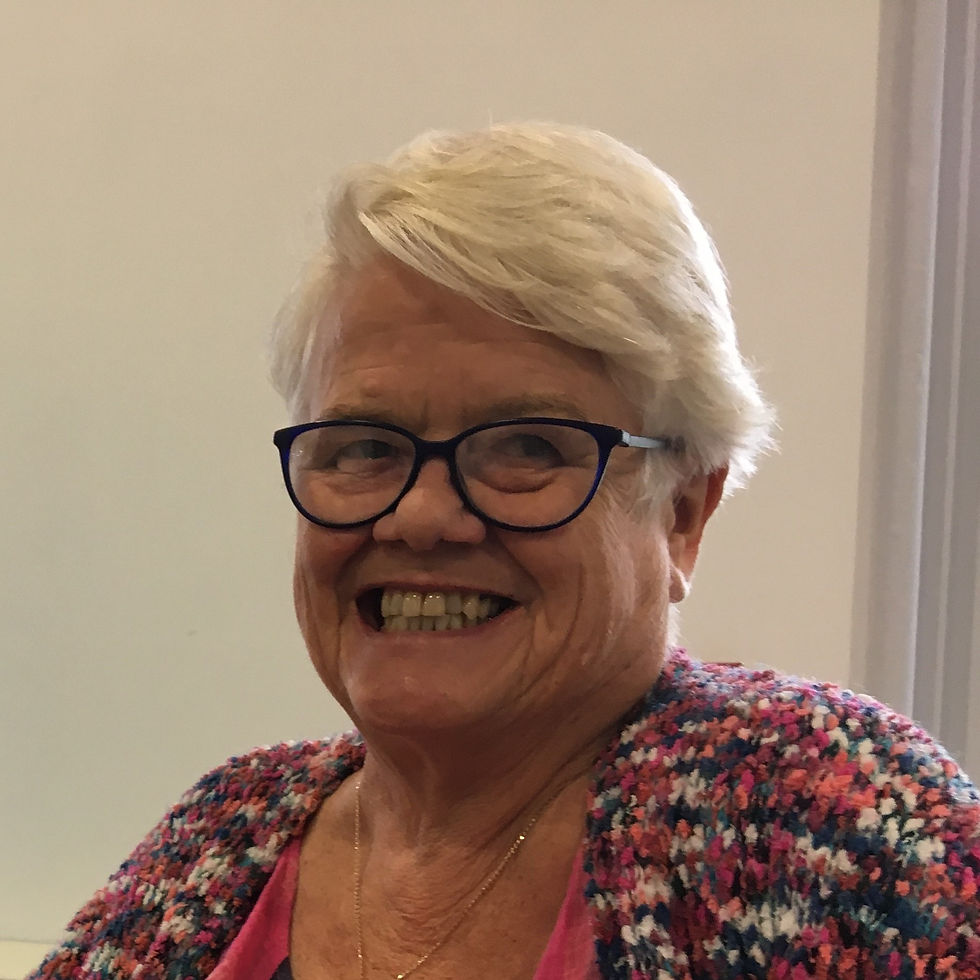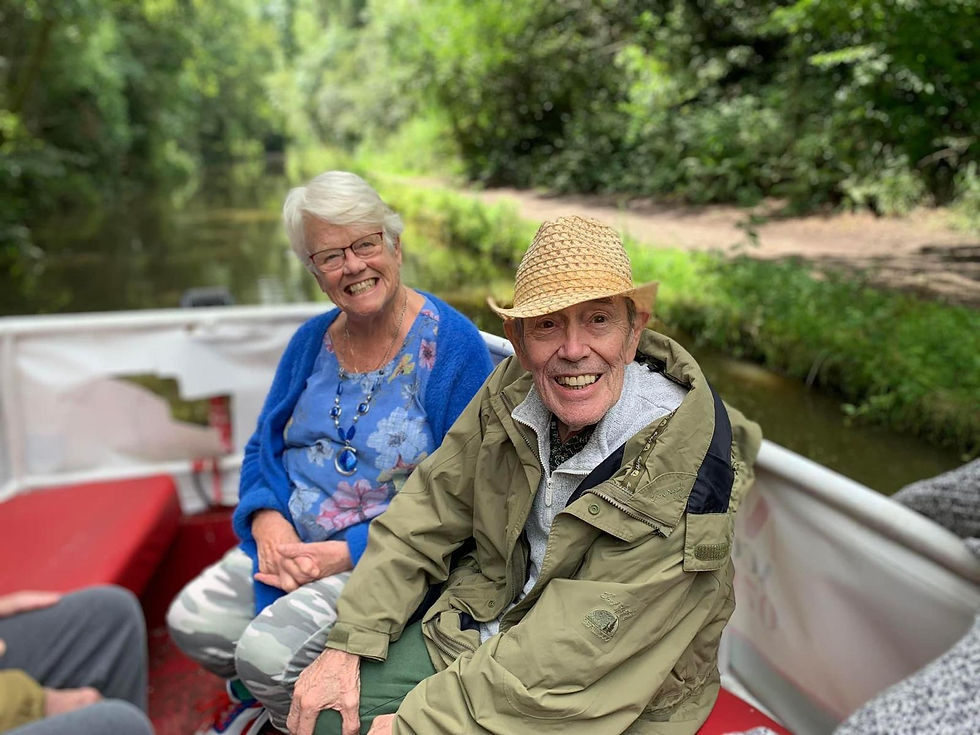
As a carer I have recently completed this Empowered Conversations follow-on course on Zoom. It was enlightening, and I was asked by Sally to review my experience as it may be something others would find useful in the future. Before attending the course I was unsure that it would be relevant at all as my husband and I connect well with words and gestures.
The course was to encourage us to be curious about other forms of communications and to observe what our loved one may be bring to communicate to us.
I already knew that emotions are transmitted non-verbally. In the final few months of caring for Malcolm at home I could not always hide my irritation at another wet bed etc. He picked up on my moods and my unhappiness and pure exhaustion. He even told me that it was time for him to step aside and let me live my life.
The movement into a care home eventually happened after Malcolm fell and broke his hip on a hospital ward. Now, when I arrive at the care home, he is happy and well. I arrive smiling and relaxed and we are now able to share our love though it were the beginning of our relationship.
So what did the course give to me?
Firstly, I was pleased that the other attendees were all very open and sharing. Three of us were wives of the person with dementia, and one person was the husband, and one was caring for her mother. I respect their privacy, but I learnt a lot from all their contributions.
One of the first videos we watched on the course showed a baby responding to its mother using only gestures. Baby also copied Mum’s movements, and was seen to be very happy with this. Mother then presented with a blank, unresponsive face. Baby tried hard to initiate hand signals and became very upset at the non-response.
On reflection, I remembered times when I visited Malcolm showing him photos on my phone. If he is not interested I may sit there and answer a few texts.
Perhaps I am ignoring his gestures and unintelligble comments? I have discontinued that habit and he gets undivided attention.
A video which I found very depressing but ultimately very useful was a video of a patient in the end stages of their dementia journey, bed-bound and without any speech or giving any responses to what the nurses were saying. The second video showed the nurse stroking the patient’s head and connecting only by non-verbal means. The patient responded by turning toward the nurse as opposed to turning away.

We were left to comtemplate on what we had learned from the video. It was a lovely interaction and very moving. I still find it to be a very distressing thought that this could be the end stage for my lovely husband.
That week I decided to try to connect with Malcolm non-verbally. On the Monday, the two of us had been in A&E for 22 hours when his catheter was blocked with a blood clot. He was understandably exhausted, and was of course more inclinced to drop off to sleep than communicate with anybody.
We always have lots of hugs and kisses and he loves to be tickled or have a foot massage. He also does lots of pointing gestures which I do not understand. This day, he tapped on the table. I copied the rhythm and he was delighted! He tapped a more complicated one - thanks to Zsuzsi and practice in the Moss Side group drumming circles. We continued the game and he laughed and thoroughly enjoyed it.
Music is so powerful, and I have always used this to calm his agitation or brighten his mood.
I also sing to him when he is walking and it makes it easier for him - more like a dance. Last week I was singing ‘On Ilkley Moor Baht’at’ and he loved the word ‘tat’, which he kept repeating. It made me laugh, and he was overjoyed.
Encouraged, I tried to get him to listen to some of his favourite classical pieces. Short response time and he soon lost interest. I kept trying, and started the 1812 Overture right from the beginning. There was recognition. He started ‘ba ba ba ba ba bum bum’. He kept the rhythm going throughout the piece.
I was more than happy with the connection and came away singing all the way home.
So the course has helped me a lot. I am now more curious about the things we can do and not always fretting about the things we have lost. Love is still there and I do believe that that is transmitted without words and is also very powerful.
Diana










Comments